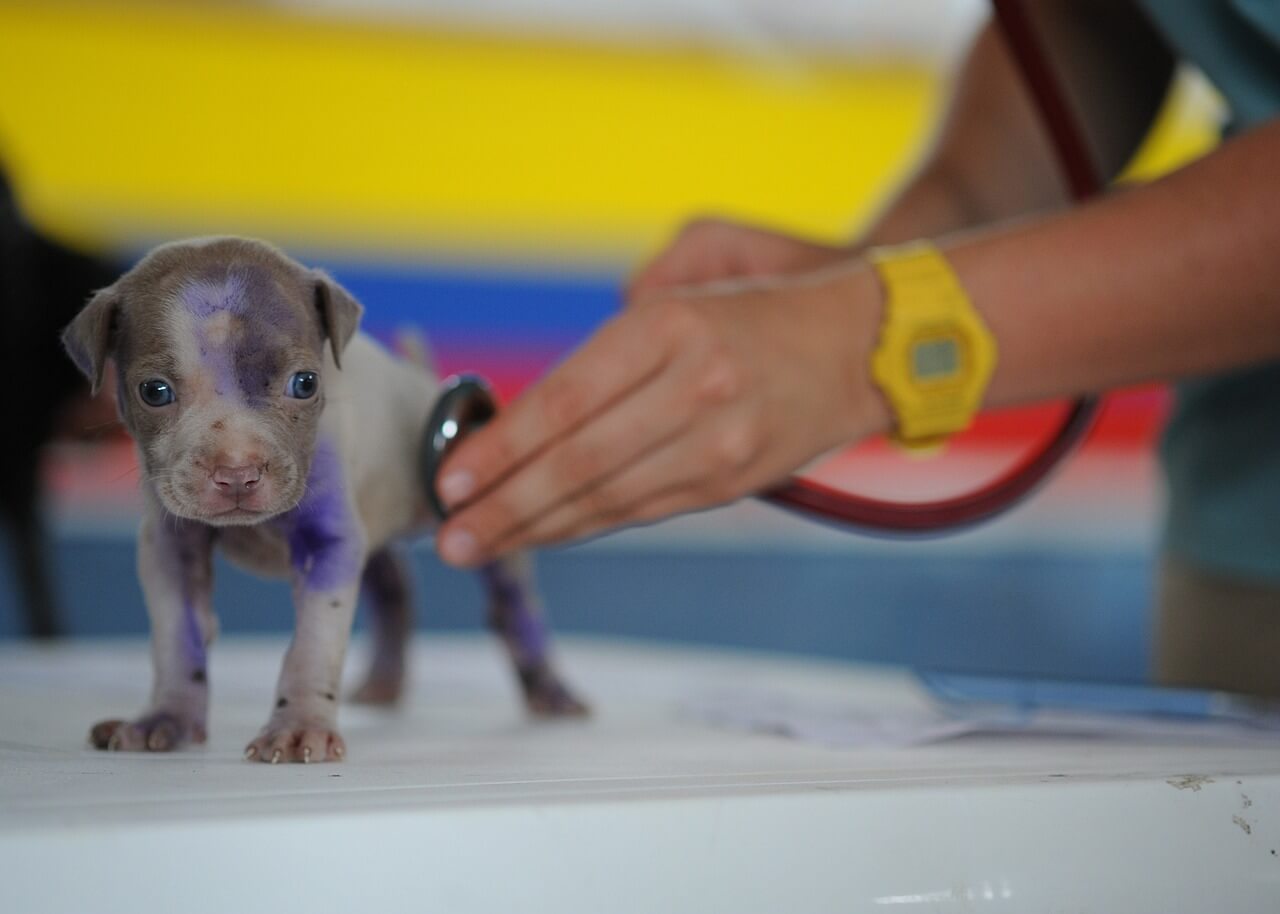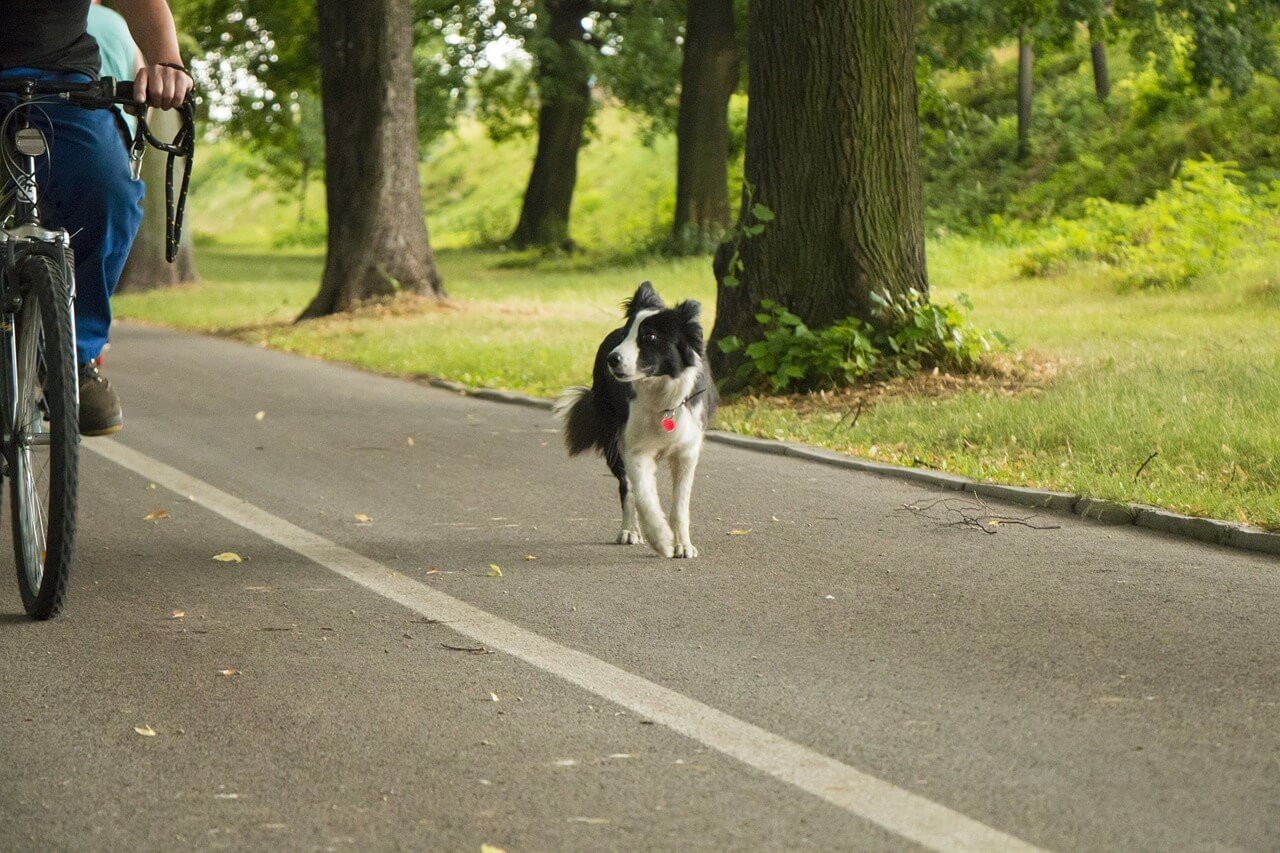Hey dog owners! Ever wonder how often you should take your furry friend to the vet? Just like us, dogs need regular check-ups, but the frequency changes as they age. From energetic puppies to wise seniors, each stage of your dog's life requires different veterinary attention. In this article we will take you through the recommended timetable, for visits, at stages of your dog's life. Let's delve into it and ensure that our furry companions stay healthy and in condition!
Puppy Stage
Bringing home a puppy? Prepare yourself for an experience filled with moments! But let's not forget about dog's health. The initial year plays a role, in establishing an robust base, for future growth.
- Initial Visits: Your puppy's first vet visit should be within the first week of bringing them home. This initial check-up ensures they’re off to a good start.
- Vaccinations: Puppies need several rounds of vaccinations in their first year. These protect against various diseases and are typically given every 3-4 weeks until they’re about 16 weeks old.
- Deworming and Parasite Control: Puppies often need deworming, and your vet will also recommend a schedule for flea, tick, and heartworm prevention.
- Spaying/Neutering: Discuss with your vet the best time to spay or neuter your puppy, usually around six months of age.
- Nutrition and Growth: Your vet will check your puppy’s growth and discuss proper nutrition – a key for healthy development.
- Socialization and Behavior: This is the perfect time to ask about socialization and address any behavioral concerns.
- Regular Check-Ups: After the initial visits, your puppy should see the vet every 3-6 months for health checks and routine care.
Adult Dogs
Congratulations, your puppy is now a grown-up! As an adult dog, their veterinary needs shift a bit, but regular check-ups remain key. Here’s what to focus on during this stage:
- Annual Check-Ups: Just like us, adult dogs should have a yearly vet visit. Regular check ups are essential to detect any health problems on and maintain proactive healthcare.
- Vaccinations: Your dog will still need regular vaccinations, but less frequently than when they were a puppy. Your vet will set up a schedule based on your dog’s lifestyle and risk factors.
- Dental Care: Dental health is often overlooked but super important. Regular dental check-ups and cleanings can prevent many health issues.
- Weight Management and Diet: Adult dogs can easily gain excess weight, which can lead to health problems. Your vet will help you keep an eye on their weight and recommend a diet plan if needed.
- Parasite Control: Continue with flea, tick, and heartworm prevention as recommended by your vet.
- Regular Blood Work: This might be suggested to monitor your dog’s overall health and catch any underlying issues early.
- Addressing Behavioral Changes: If you notice any changes in your dog’s behavior, it’s important to discuss them with your vet.
At this stage even if your dog appears to be perfectly healthy it is important to schedule visits, to the veterinarian.
Senior Dogs
Time flies, and before you know it, your canine companion has entered their senior years. During this phase the focus is primarily, on ensuring comfort taking measures and detecting age related problems at a stage. Here’s how to adjust your vet visit routine for your senior dog:
- Bi-Annual Check-Ups: As dogs age, health issues can crop up more frequently. It's a good idea to increase vet visits to twice a year to catch any problems early.
- Blood Work and Health Screens: Regular blood tests and health screenings become more important. They assist in identifying health issues that are frequently found in dogs, such, as kidney disease, liver complications and diabetes.
- Joint Health: Many senior dogs develop arthritis or other joint issues. Your vet can recommend treatments or supplements to keep your dog comfortable.
- Dental Health: Continuing attention to dental care is crucial, as older dogs are prone to dental issues that can affect overall health.
- Diet and Nutrition: Senior dogs have different nutritional needs. Your vet might suggest a diet change to support their aging bodies.
- Monitoring Physical and Cognitive Changes: Keep an eye on any changes in mobility or behavior. Discuss these with your vet, as they can be signs of underlying health issues.
- Pain Management: If your dog is in pain from age-related conditions, your vet can help with pain management strategies.
Special Considerations
Just like people, every dog is unique, and some may have specific health considerations that require extra attention. Whether it’s due to a chronic condition or breed-specific issues, here’s how to tailor your approach:
- Chronic Health Conditions: Dogs with chronic conditions like diabetes, heart disease, or allergies may need more frequent vet visits. Your veterinarian can create a care plan, for your pet, which may include managing medications and regularly monitoring their health.
- Breed-Specific Concerns: Some breeds are prone to certain health issues. For instance, large breeds often face joint problems, while brachycephalic breeds (like Bulldogs and Pugs) can have respiratory issues. Work with your vet to understand and proactively manage these breed-specific risks.
- Lifestyle Considerations: The care needs can also vary based on your dog’s lifestyle. Active, athletic dogs might need more attention to their joint and muscle health, while more sedentary dogs might struggle with weight-related issues.
- Nutritional Needs: Special diets may be necessary for dogs with specific health issues. Your vet can guide you on the best nutrition plan.
- Mental Health: Don’t forget about your dog’s mental health, especially if they have anxiety or stress-related behaviors. Your vet can offer advice or refer you to a canine behaviorist.
- Regular Communication with Your Vet: Keep an open line of communication with your vet. Regular updates on your dog’s condition can help in adjusting their care plan as needed.
All dogs should receive attention and care. By recognizing and addressing their requirements we can ensure that they live an healthy life irrespective of any special circumstances they may have.
Emergency Situations
No one likes to think about emergencies, but being prepared is crucial for every dog owner. Having the knowledge to identify and address health concerns can truly make an impact. Here's what you need to know:
- Recognizing Emergencies: Some situations require immediate veterinary attention. Watch out for signs like severe vomiting or diarrhea, difficulty breathing, extreme lethargy, uncontrolled bleeding, or suspected poisoning.
- Preparation is Key: Have your vet’s emergency contact information readily available. Also, find out the location of the nearest 24-hour animal hospital.
- First Aid Basics: Learn basic pet first aid. Knowing how to handle minor injuries or stabilize your dog on the way to the vet can be lifesaving.
- Transport Safely: In an emergency, ensure you transport your dog safely. Use a carrier or a makeshift stretcher for larger dogs if they cannot walk.
- Stay Calm: Your dog can sense your anxiety. Staying as calm as possible can help keep them calm too.
- Aftercare: Following an emergency, your dog may need additional care or observation. Follow your vet’s instructions closely and monitor your dog for any changes.
Being aware of the indications of an emergency and understanding how to react can guarantee the favorable result, for your beloved pet during a critical event.
Conclusion
We've covered a lot about the importance of regular veterinary visits throughout your dog's life. Whether they're a playful puppy, an energetic adult, or a graceful senior, these check-ups are more than just routine—they're a cornerstone of preventive care.
Travel Bolster Safety Medium Large Dog Car Back Seat Bed

1.419,00 kr
2.729,00 kr
REASONS TO LOVE OUR CAR BACK SEAT BED Triple protection The dog car seat has three harnesses that can be hung on the pet, back or collar to secure the pet in the car seat and prevent injury from… read more
Dog Car Seat Bed - First Class

733,00 kr
1.374,00 kr
Keeping your dog safe Adjustable safety leashes & fixing seat belts Built-in safety buckle to combine with dog collar Use both at home & in the car Whether in the car or at home, it can give your dog peace of… read more
Multifunction Hands Free Dog Leash With Safety Seat Belt

256,00 kr
449,00 kr
Whenever I need a long leash for maximum freedom of movement, a short one for better control, or a seatbelt for car safe, only this leash suits for me. 6 in 1 Leash Hands-free Shock Absorbing Bungee Safety Seatbelt Stationary… read more








